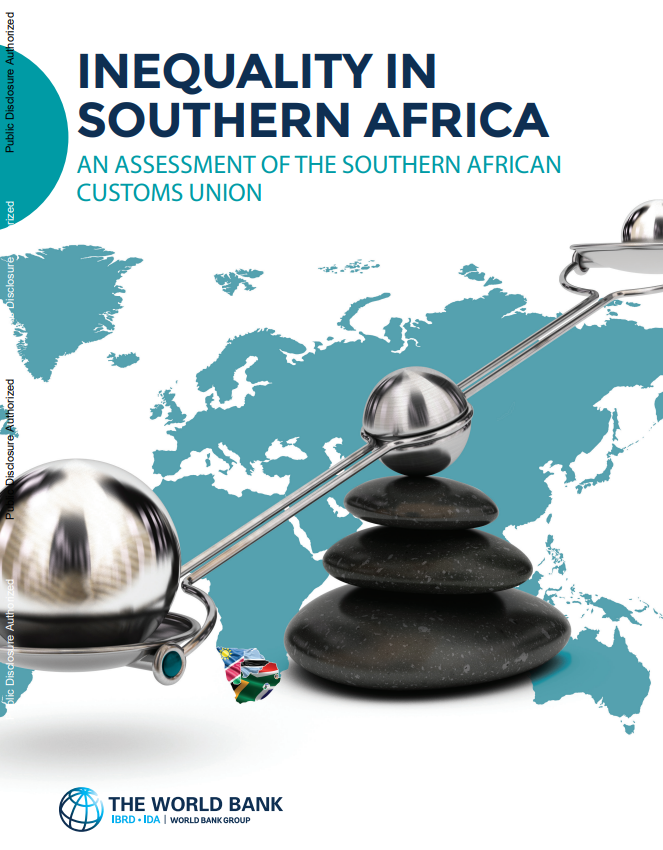Inequality in Southern Africa
An Assessment of the Southern African Customs Union

This World Bank report on Inequality in Southern Africa: An Assessment of the Southern African Customs Union, examines the process of household income generation to identify the sources of inequality in the region. It finds that the Southern African Customs Union (SACU) member countries of Botswana, Eswatini, Lesotho, Namibia, and South Africa, represent the world’s most unequal region though there are differences across countries with Namibia and South Africa distinctly having higher inequality than the rest and Lesotho the least.
Consumption inequality across the SACU region is found to be more than 40 percent higher than the averages for both Sub-Saharan Africa and upper-middle-income countries. South Africa, the largest country in SACU, is the most unequal country in the world, ranking first among 164 countries in the World Bank’s global poverty database. Botswana, Eswatini, and Namibia are among the 15 most unequal countries, and despite recent improvements, Lesotho still ranks among the top 20 percent, the report shows.
Abstract based directly on source.


Comments